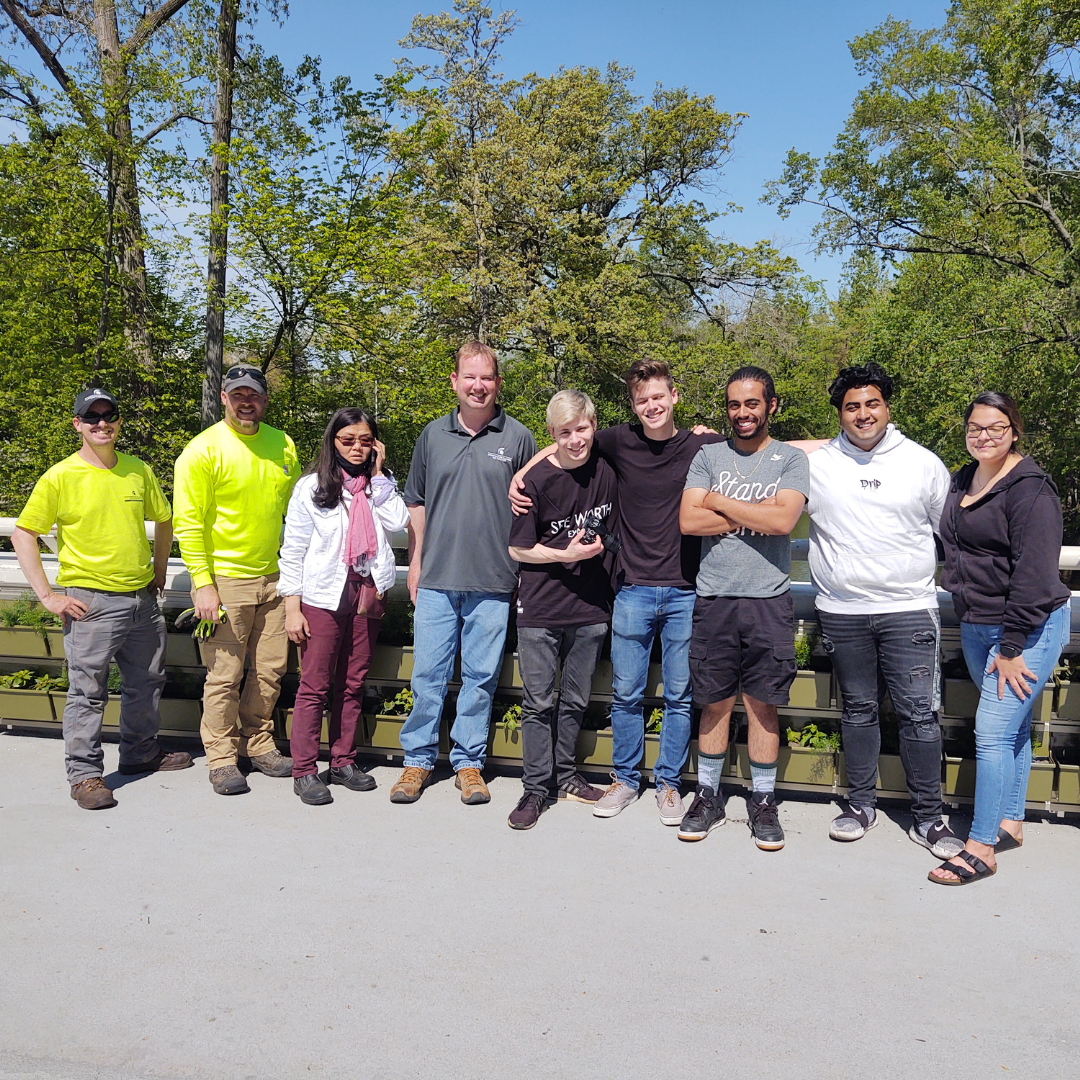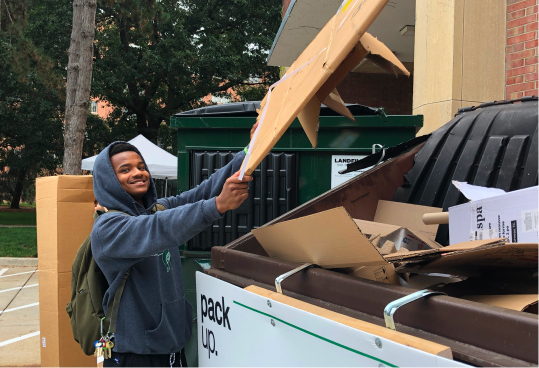Volunteering and community service are integral to the Spartan experience, providing students with hands-on, experiential learning opportunities. Civic engagement is also critical to help achieve the U.N. Sustainable Development Goals. At MSU, there are multiple ways to give back, build connection, and help foster sustainable communities on campus, in the Lansing area, within Michigan and beyond.
Spartan Serve
Spartans Serve is a year-round effort designed to show the world the impact Spartans make through community service. This organized, collaborative effort brings Spartans together to serve others in their communities while demonstrating the reach and power of the Spartan network. Since 2013, over 14,000 volunteers have contributed more than 61,000 hours on over 1,000 projects in Michigan and beyond.
Spartan Days of Service, a featured program of Spartan Serve, gives students the chance to get involved and make an impact in the local community. Projects are open to all students and include transportation, a light breakfast, bagged lunch and a t-shirt for the day.
The Global Day of Service, which began in 2013, is an annual event is committed to demonstrating the amount of good that can be done in a single day, while connecting Spartans to a common cause around the world.
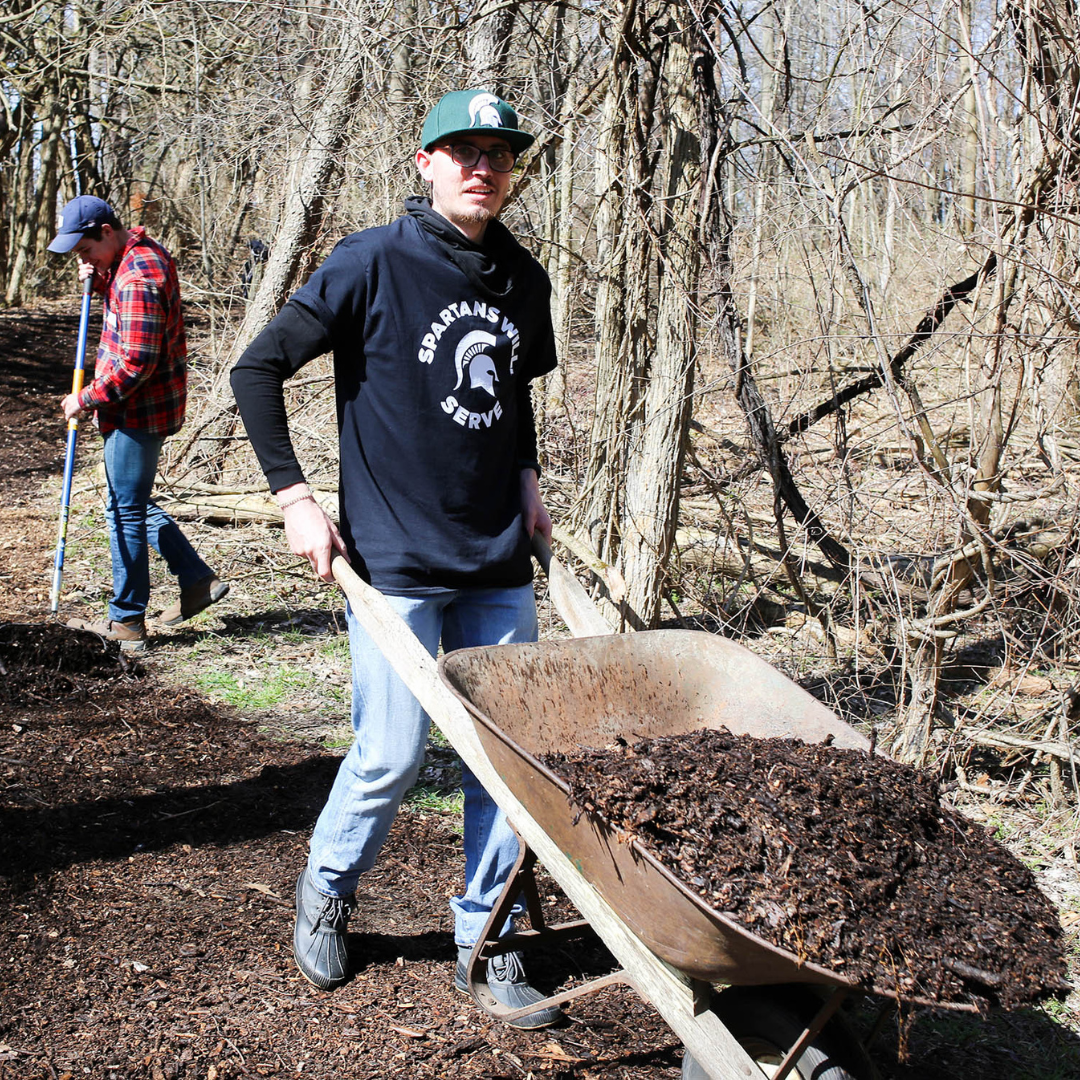
Center for Community Engaged Learning
The Center for Community Engaged Learning offers volunteer and work-study tutoring opportunities for students, and also helps MSU faculty and staff incorporate community engaged learning into their academic classrooms and curriculum. The Center has aligned its community engaged learning opportunities with the U.N. Sustainable Development Goals (SDGs) to better understand the learning outcomes and goals of the tasks being performed. The Center's Summer of Service program centers around the U.N. Sustainable Development Goals. For the 2021–2022 school year, over 27,000 students took part in community-engaged learning, with over sixty percent of those experiences happening outside the classroom. Learn more in the Community Engaged Learning Index Report for academic year 2022.
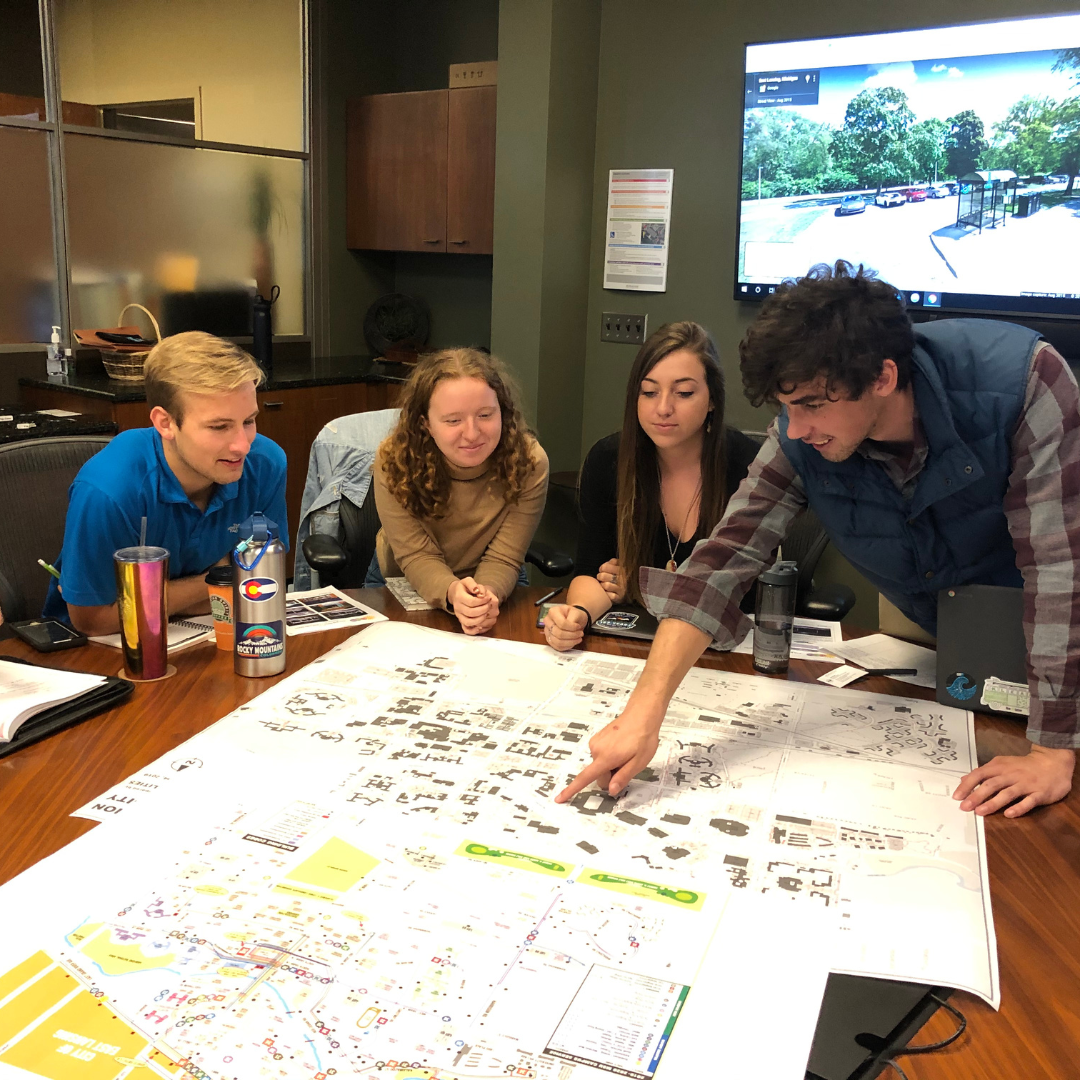
My Spartan Story
At MSU, students are often involved in a variety of co-curricular activities such as leadership programs, volunteer opportunities, student organizations, student employment, research positions, internships, community engaged learning, and civic engagement opportunities. All of these experiences provide valuable experiential learning opportunities, and through My Spartan Story, MSU students can formally capture their learning experiences outside of the classroom. Students can also use the platform to identify volunteer opportunities that are of interest.
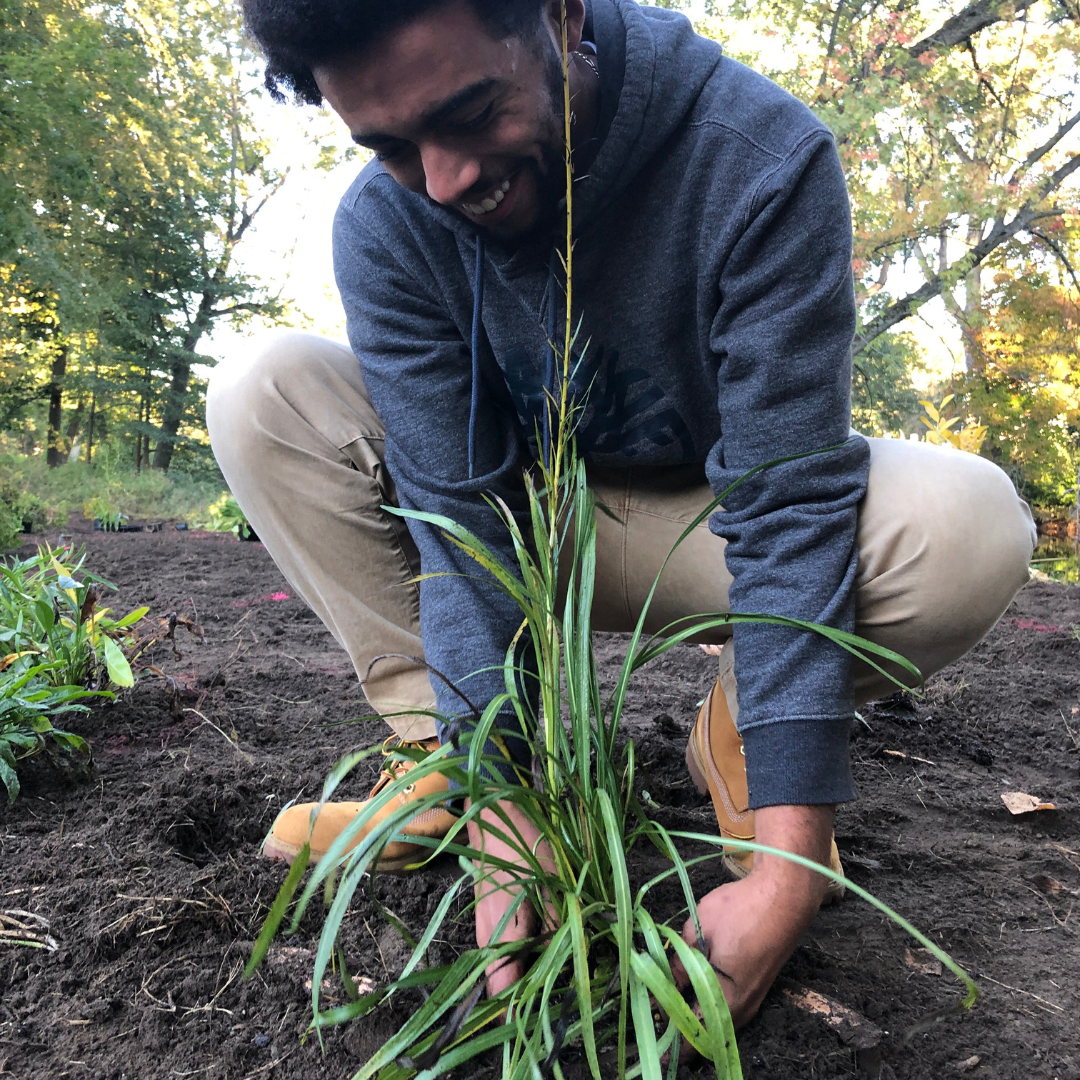
Pack Up. Pitch In.
Since 1996, MSU students have been pitching in to turn their unwanted items into a valuable resource for area charities. The days surrounding the beginning and close of each semester, when students are moving into and out of the residence halls, represent an increased opportunity for recycling and waste reduction efforts. As part of this long-running program, residents are encouraged to donate non-perishable food and personal care items, which are collected and donated to local charitable organizations, such as MSU Safe Place, the MSU Student Food Bank, and the Greater Lansing Food Bank. In spring of 2019, Student Life and Engagement collected and donated more than 6,200 pounds of food to its partners. The amount of nonperishable food donations doubled to over 12,000 pounds during spring 2022 move out. Spartans continue to suppport the local community, donating roughly 12,000 pounds of food during the spring 2023 move out. Volunteers are needed at both move in and move out to capture recycling materials and donated goods.
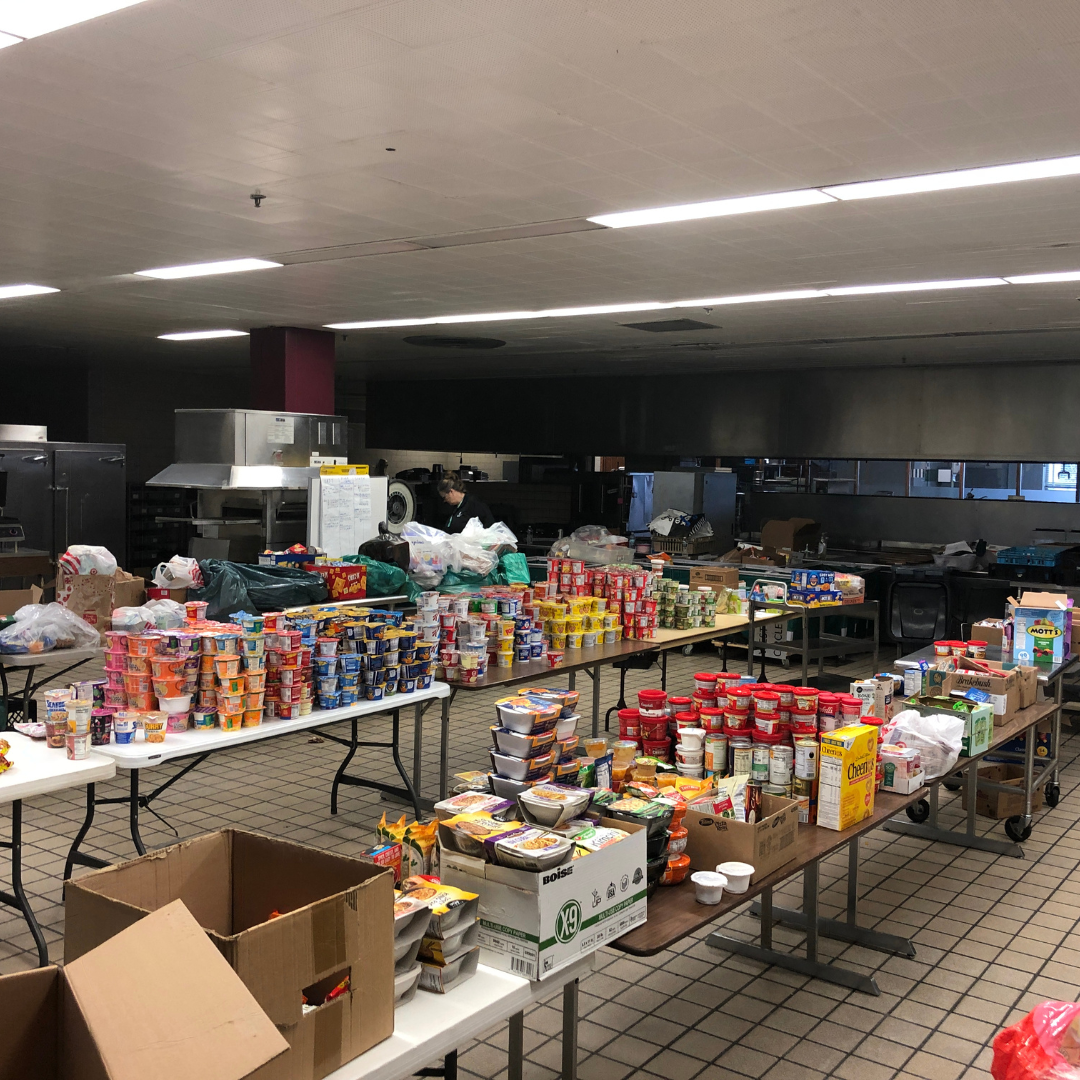
Student Organizations
MSU has over 50 student organizations with roots in sustainability. Student groups are a great way to get involved and volunteer as a Spartan. Student groups with a sustainability focus have planned and implemented projects and campaigns to make MSU or the surrounding community more sustainable. Some highlights are below.
- Engineers for a Sustainable World worked with Fenner Nature Center in Lansing to explore opportunities to install sustainable features at their education center, including a green roof and a rain barrel.
- Sustainable Spartans club has spearheaded projects to install solar-powered lighting at campus bus shelters, plant pollinator gardens, and install green walls along the Library pedestrian bridge.
- Spartan Sierra Club annually engages in advocacy campaigns to support sustainable communities in the state of Michigan.
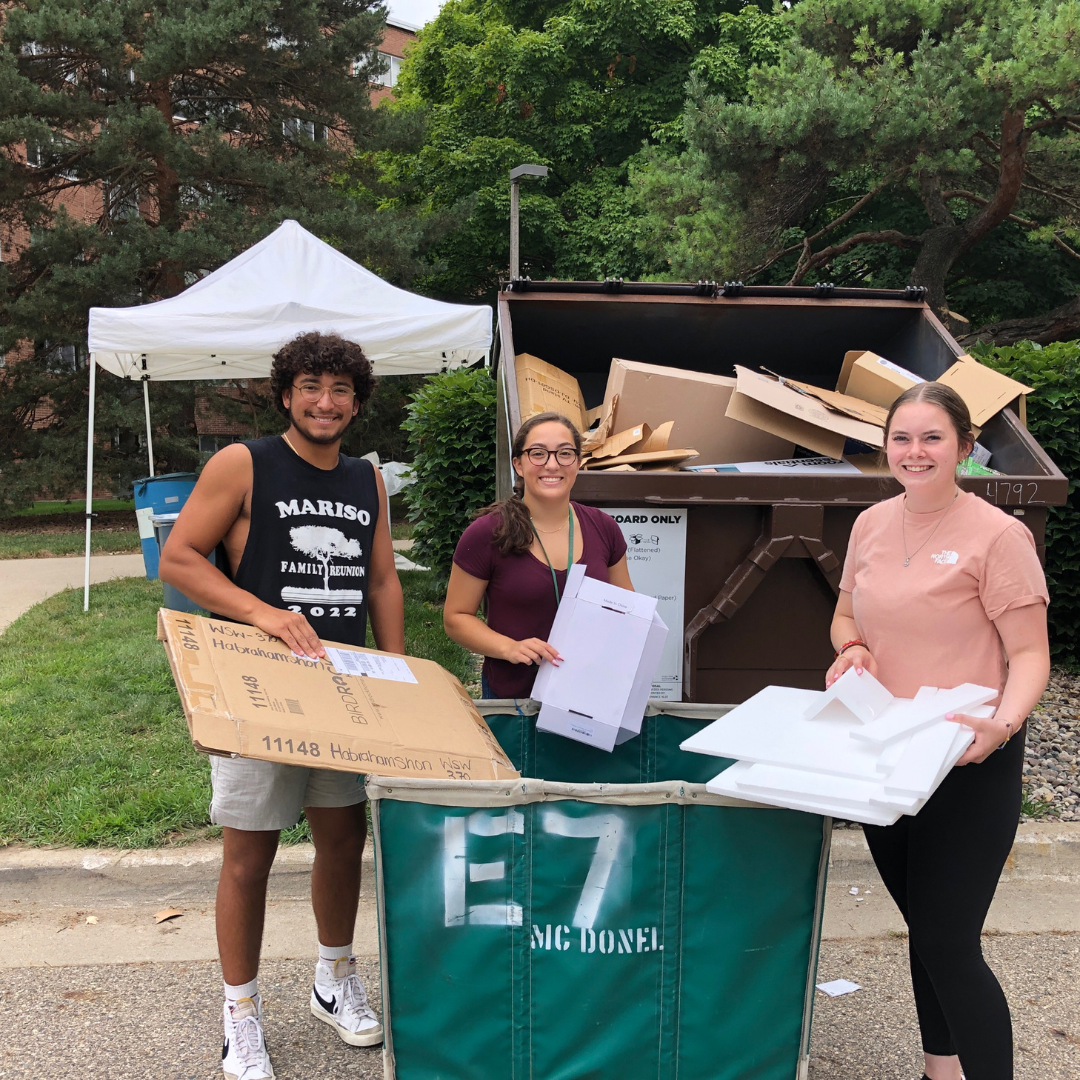
Student Programs
Eco Reps are students who care about sustainability and the betterment of the MSU campus and serve as peer to peer educators for students. Volunteer to become an Eco Rep and have a direct impact in educating your peers in sustainable practices.
The Student Sustainability Leadership Council (SSLC) empowers students to leverage their collective voices, act on sustainability challenges, and become ambassadors for their peers. The SSLC is comprised of student leaders from undergraduate and graduate student organizations on campus that are passionate about sustainability.
Students can also volunteer and advocate for a more sustainable university by getting involved with student government. Undergraduate students can get involved with ASMSU by running for an elected position, applying for a student positions such as ASMSU Sustainability Director, or participating in ASMSU's ad-hoc sustainability committee. Graduate students can get involved with the Council of Graduate Students (COGS).
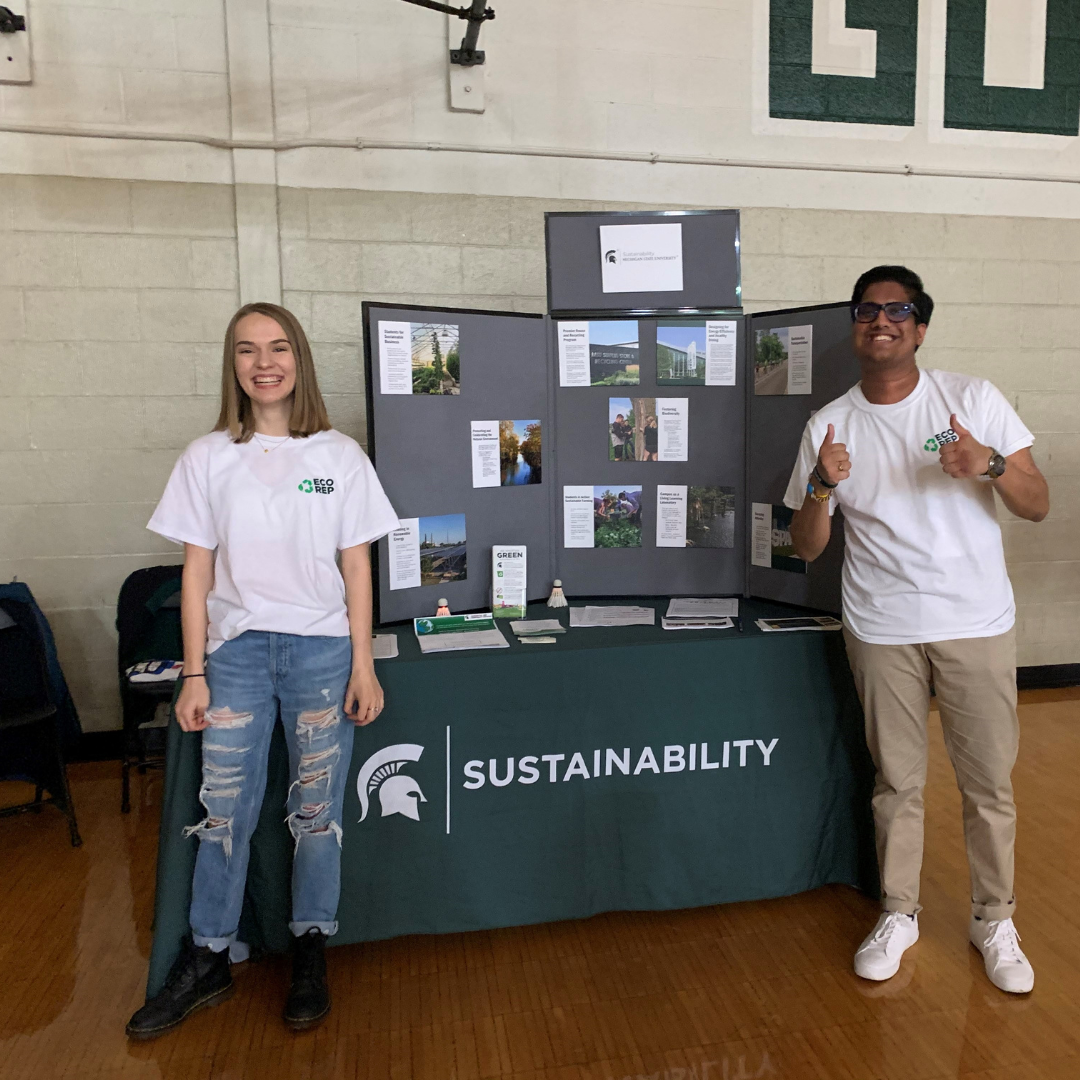
Student Sustainability Projects
Through student organizations, MSU departments and partnerships, there are ample opportunities to take part in a student sustainability project at MSU. The Office of Sustainability coordinates the Campus Sustainability Student Projects Fund (aka Student Green Fund) to support student-led, staff-supported sustainability projects. The MSU Center for Community and Economic Development also coordinates student-led, faculty-guided projects, which allow students to contribute to the completion of local and regional economic development initiatives.
